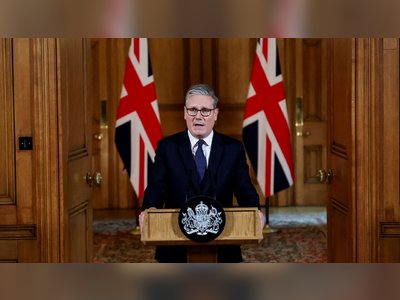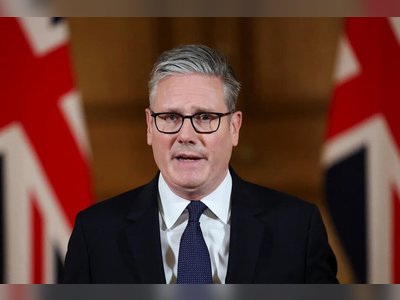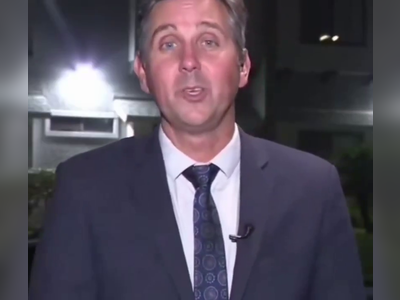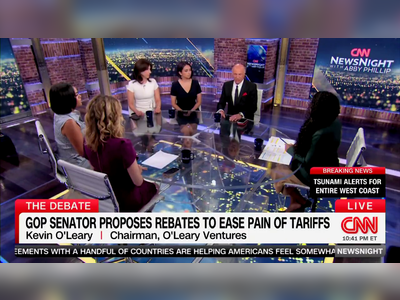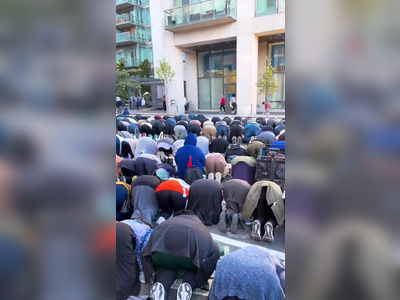US and China Engage in Trade Discussions in London Amid Ongoing Tensions
Negotiations follow recent talks aimed at maintaining a fragile truce on tariffs and trade relations.
WASHINGTON - In the wake of a previous round of discussions in Geneva, United States and Chinese officials are set to convene in London on Monday to engage in negotiations aimed at preserving a tenuous truce regarding trade.
This meeting follows a recent telephone conversation between US President Donald Trump and Chinese President Xi Jinping, which was characterized by both leaders as a step towards alleviating tensions concerning tariffs.
Leading the US delegation will be Treasury Secretary Scott Bessent, Commerce Secretary Howard Lutnick, and Trade Representative Jamieson Greer, as announced by President Trump on Friday.
Simultaneously, Chinese Vice Premier He Lifeng, who headed the negotiating team in Geneva, will lead the discussions for China.
Trump expressed optimism about the upcoming meeting, stating on his Truth Social platform, "The meeting should go very well." His press secretary, Karoline Leavitt, emphasized the administration's desire for the ongoing progress made since the Geneva meeting.
The UK government, led by Prime Minister Keir Starmer, has stated that it is not involved in the negotiations but supports the discussions as a nation promoting free trade.
A spokesperson articulated that a trade war is not beneficial for any party involved and welcomed the ongoing diplomatic efforts.
The London talks follow a telephone dialogue between Trump and Xi that marked their first formal communication since Trump's return to the White House.
Trump described the call, which took place on Thursday, as arriving at a "very positive conclusion".
During the conversation, Xi underscored the need to recalibrate Sino-US relations, referring to this as "correcting the course of the big ship."
Tensions between the two nations have escalated recently, particularly following accusations from Trump that China had violated components of a previously negotiated de-escalation agreement established in Geneva in mid-May. Leavitt reiterated the necessity for China to uphold its end of the bargain in the upcoming talks.
In April, the US implemented sweeping global tariffs, significantly impacting Chinese goods, with certain products facing additional levies as high as 145%.
China's subsequent countermeasures included tariffs on US goods of up to 125%.
The discussions in Switzerland concluded with both nations agreeing to reduce their tariffs over a 90-day period, although issues have continued to arise, particularly regarding China's controls on the export of rare earth minerals, which are pivotal for technology production.
Concurrently, China has been engaging in talks with other trading partners such as Japan and South Korea, aiming to consolidate support against Trump's tariffs.
Recently, a dialogue was initiated between China and Canada, during which Canadian Prime Minister Mark Carney and Chinese Premier Li Qiang addressed trade relations and the fentanyl crisis.
Furthermore, Beijing proposed the establishment of a "green channel" to facilitate the export of rare earth minerals to the European Union, seeking to expedite the approval of relevant export licenses.
This proposal was discussed in a meeting between China's Commerce Minister Wang Wentao and EU Trade Commissioner Maros Sefcovic.
A summit between the EU and China is scheduled for July, commemorating 50 years of diplomatic relations between the two entities.
This meeting follows a recent telephone conversation between US President Donald Trump and Chinese President Xi Jinping, which was characterized by both leaders as a step towards alleviating tensions concerning tariffs.
Leading the US delegation will be Treasury Secretary Scott Bessent, Commerce Secretary Howard Lutnick, and Trade Representative Jamieson Greer, as announced by President Trump on Friday.
Simultaneously, Chinese Vice Premier He Lifeng, who headed the negotiating team in Geneva, will lead the discussions for China.
Trump expressed optimism about the upcoming meeting, stating on his Truth Social platform, "The meeting should go very well." His press secretary, Karoline Leavitt, emphasized the administration's desire for the ongoing progress made since the Geneva meeting.
The UK government, led by Prime Minister Keir Starmer, has stated that it is not involved in the negotiations but supports the discussions as a nation promoting free trade.
A spokesperson articulated that a trade war is not beneficial for any party involved and welcomed the ongoing diplomatic efforts.
The London talks follow a telephone dialogue between Trump and Xi that marked their first formal communication since Trump's return to the White House.
Trump described the call, which took place on Thursday, as arriving at a "very positive conclusion".
During the conversation, Xi underscored the need to recalibrate Sino-US relations, referring to this as "correcting the course of the big ship."
Tensions between the two nations have escalated recently, particularly following accusations from Trump that China had violated components of a previously negotiated de-escalation agreement established in Geneva in mid-May. Leavitt reiterated the necessity for China to uphold its end of the bargain in the upcoming talks.
In April, the US implemented sweeping global tariffs, significantly impacting Chinese goods, with certain products facing additional levies as high as 145%.
China's subsequent countermeasures included tariffs on US goods of up to 125%.
The discussions in Switzerland concluded with both nations agreeing to reduce their tariffs over a 90-day period, although issues have continued to arise, particularly regarding China's controls on the export of rare earth minerals, which are pivotal for technology production.
Concurrently, China has been engaging in talks with other trading partners such as Japan and South Korea, aiming to consolidate support against Trump's tariffs.
Recently, a dialogue was initiated between China and Canada, during which Canadian Prime Minister Mark Carney and Chinese Premier Li Qiang addressed trade relations and the fentanyl crisis.
Furthermore, Beijing proposed the establishment of a "green channel" to facilitate the export of rare earth minerals to the European Union, seeking to expedite the approval of relevant export licenses.
This proposal was discussed in a meeting between China's Commerce Minister Wang Wentao and EU Trade Commissioner Maros Sefcovic.
A summit between the EU and China is scheduled for July, commemorating 50 years of diplomatic relations between the two entities.

